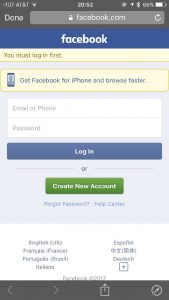At work I recently offered some unsolicited advice to my team as I head on sabbatical. I'm sharing a slightly modified version of it here because in addition to being a way I've approached my job, it's a way I've tried to approach a lot of things in life. Here it is:
Go toward the hard stuff.
If there’s been a driving strategy in my work as a team lead, it’s been to get us to uncover the hardest, most complicated, messy, unclear, unsustainable parts of what we do, and hold them up to the light for examination.
Whether it’s in processes, workflows, tools, communication, relationships, quality, performance or outcomes, I am proud of the ways we’ve been questioning the premise, seeing through the eyes of our clients, stakeholders and the broader WordPress community, willing to throw out old/broken ways of doing things, and reflecting carefully and in-depth on what we can apply from each experience the next time around.
Going toward hard things has rarely been super fun, is often tedious, and sometimes it hasn’t even “worked,” but I think it’s always been worthwhile. And usually once we’re on the other side of the hard stuff, people seem to be glad that we got there together.
So if it’s something bugging you about work we’re about to deliver, or a remark from a colleague, or a gap in your understanding of the “why” behind a task or project, I say go toward it.
If it’s perpetuating something that doesn’t scale or feel sustainable, go toward it.
If you know a problem is going to make you or someone else miserable later on but you’re tempted to work around it for now, go toward it instead.
We won’t always find clarity or a solution. But done with kindness and empathy, patience and openness, I think this can be one of our most powerful tools in any challenge we face as a team.
See also: Conflict resolution as a life skill, Crucial Conversations, Are you working around someone?

 I won't make a claim that the hours I've saved by not looking at Facebook have freed me up to accomplish some amazing other thing. I will say that I felt a nice release from the self-created pressure to keep up with my interactions and profile there, and that in turn has contributed to an increase in my overall creative energy for other things.
I won't make a claim that the hours I've saved by not looking at Facebook have freed me up to accomplish some amazing other thing. I will say that I felt a nice release from the self-created pressure to keep up with my interactions and profile there, and that in turn has contributed to an increase in my overall creative energy for other things.


